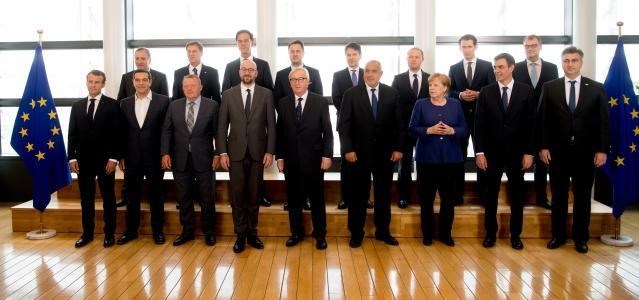


"We have discussed mainly the possibilities of reception centres that might be outside the EU. There was no mention of building them inside the EU. Furthermore, the idea is that following the example of the agreements with Turkey, Jordan and Lebanon, solutions should be sought that will prevent migrant tides in the future," Plenkovic told the press at the end of the meeting in Brussels on Sunday evening.
Asked by the press whether those migrant-holding centres could be only in north Africa or if they could be also in the western Balkans, Plenkovic said that that he had got an impression that such speculations about centres in Croatia's neighbourhood would not come true.
The Croatian premier said that the gathering convened by European Commission President Jean-Claude Juncker had been an occasion to exchange the opinions on three topics: asylum and migrations policies, full consensus on the protection of the European Union's external borders, and the matter of secondary migrations.
Migration and asylum policies
When it comes to migration and asylum policies, Plenkovic says that there is a consensus about its external dimension and there is also the wish to continue implementing the relevant EU-Turkey agreement whereby the EU bloc is to pay the remaining part of the funds set aside for Turkey. There is also readiness to make similar arrangements with other countries following this example, and those arrangements should be applied in north Africa, for instance with Libya, so as to stop the further flows of illegal migrations.
As regards protection of the EU external borders and the issue of secondary migrations, Plenkovic said that they have agreed in principle to continue talks on seven legislative acts, including the overhauling of the Dublin Regulation.
Text: Hina